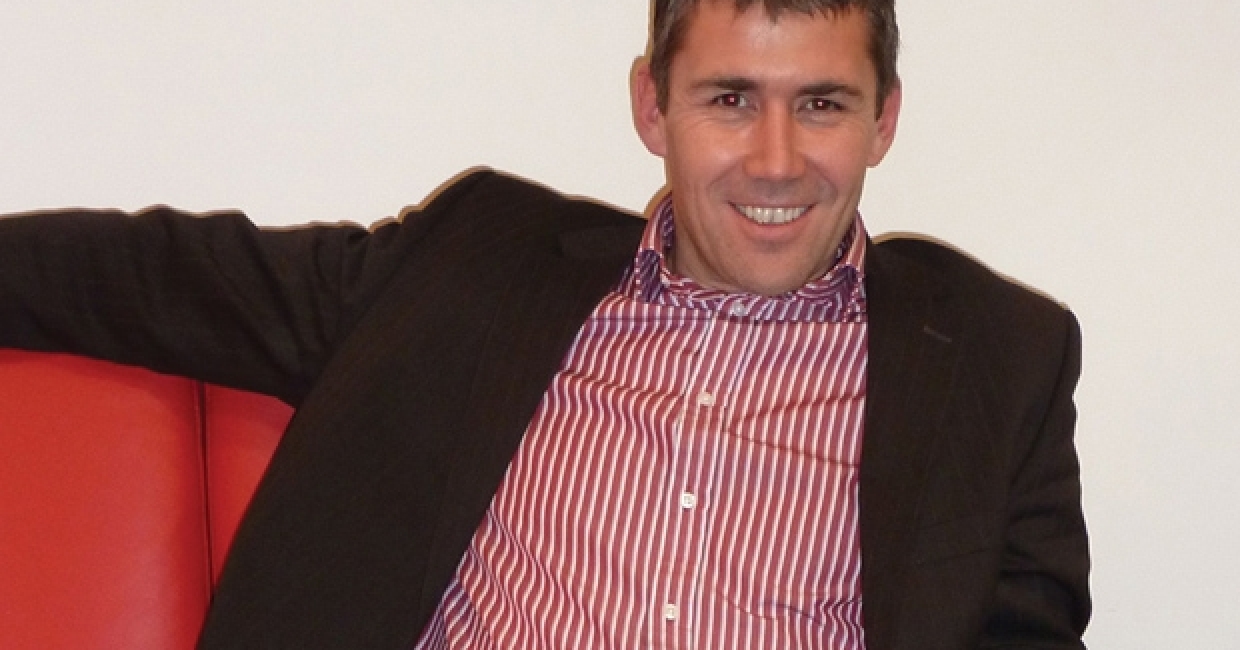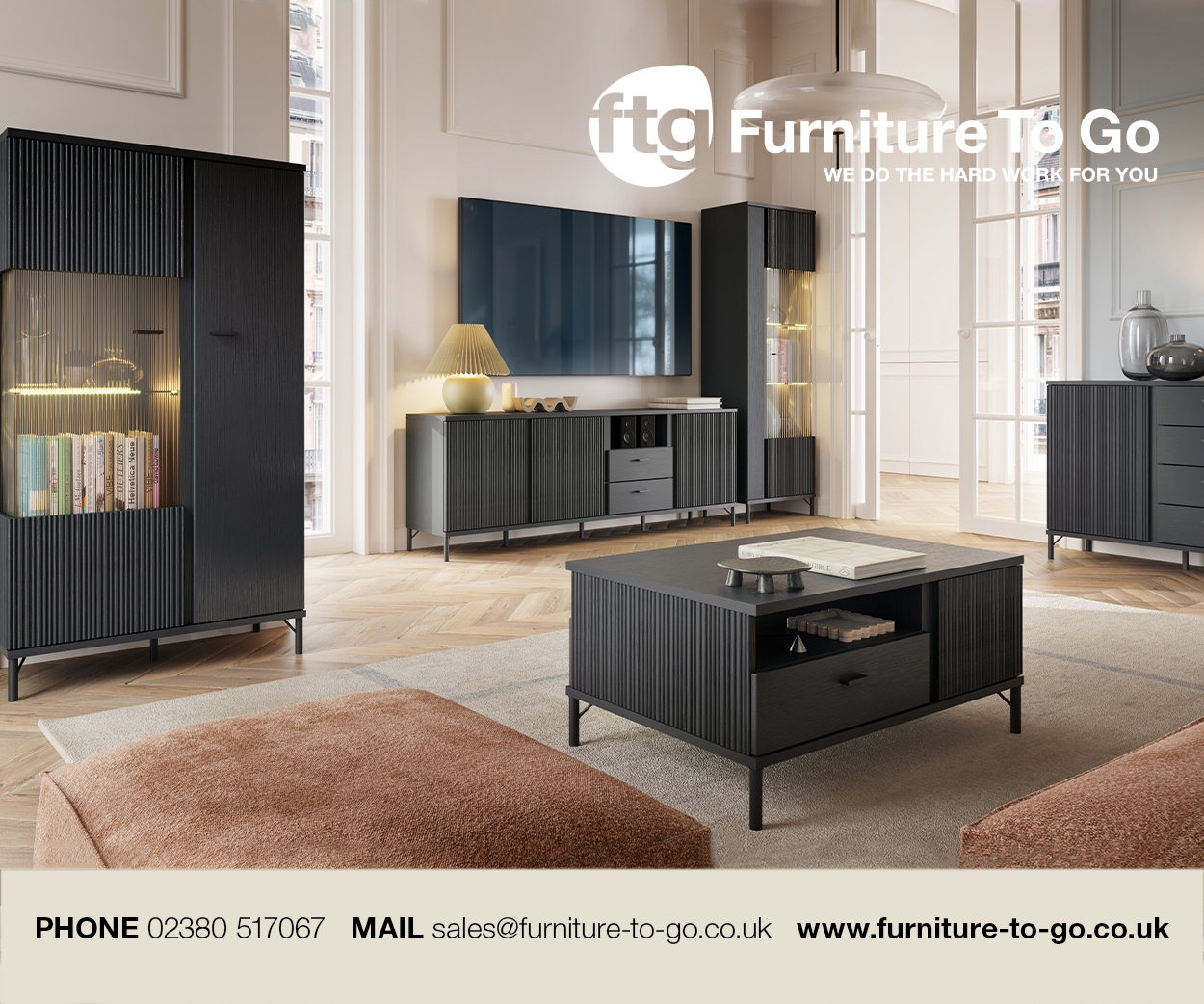How frequently should a retailer introduce new product? Like most, dwell, a retailer defined by its affordable, design-led furniture and off-the-wall accessories, adopts a seasonal approach. Paul Farley attended the launch of dwell’s Q3/4 collections, and heard about the company’s plans from previous Ekornes UK helmsman, Mike Haines …
Il Bottaccio, an ornate classical venue in Knightsbridge, seems an odd place in which to present dwell’s newest wares, which are typified by the contemporary and the quirky. However, somehow it works – the eye is drawn to the collections rather than the surroundings, reminding visitors that these furnishings are eminently flexible.
Principally for the purpose of promotion to the consumer press, the new products have been arranged into three distinct stories: Geometrics, comprising angular models in soft greys and monochrome, broken up with splashes of intense citric accent colours; Super Natural, which blends moody gothic metallics and black finishes with furs and animal skins; and Pop Shop, a dazzling neon psychedelic collection of stand-out accessories.
These three looks sit fairly comfortably alongside the retailer’s best-selling furniture and upholstery mainstays.
The mix is eclectic, but, as anyone who has visited more than one dwell store may have noticed, each boasts a degree of individuality, contrary to the mainstream branding mindset that espouses identikit outlets. There’s a world of difference between the modern, Westfield-based centres and the Guildford store, a former Grade II Listed cinema.
As co-founder and marketing chief Shaun Galligan puts it: “Brand guidelines are good, but they can make you blinkered – if, on the other hand, you don’t have them, you’ll adapt and take the brand in new directions. This approach will work, as long as it’s what your customers want!”
dwell’s most successful store launch was at the opening of Westfield Stratford City in late 2011 – which it followed with new outlets in Leeds, Cardiff and Guildford this year. “These store types are very different,” says Mike Haines, sales director of dwell since December, and the man responsible for running – and opening – its stores.
"Guildford’s is a cinema turned into a retail space – it’s like walking around an old house – whereas the store in Cardiff’s St David’s is much more traditional. We feel that we can make the dwell brand work in those different spaces, and what we create in each environment is a very different shopping experience. We don’t have a set layout plan – it’s more of a journey through the store – which increases the dwell time, no pun intended.
“The ones that have worked best are, predictably, high street locations in major cities – as well as the Westfield centres. They tend to be located alongside like brands – not necessarily furniture, but lifestyle stores in general. In fact, the closure of Habitat, which, at the time, probably represented the closest cross-over with dwell in terms of offering, actually hit us pretty hard – all of a sudden we were surrounded by empty stores!”
Mike’s CV is replete with high-level retail positions. His most recent job at luxury recliner specialist Ekornes saw him successfully roll out the Stressless Studio concept across the UK’s outlets, while pioneering world-leading marketing initiatives and establishing more than 20 new stockists. As a truly multi-channel retailer, built upon a strong online offering, dwell represents a new challenge across a wider market context.
There are currently 22 dwell stores – there will be 24 by the end of the year – and Mike believes that, with the right approach, this could grow beyond 60.
“There’s still huge market share for us,” says Mike, “even though trade is down overall. We are a nation of shoppers, and people like to spend money on their homes. There’s a pent-up demand, and when it breaks, it’s going to break very strongly – not just for dwell, but for the whole industry. The fact that we can grow, and even expand in these times is impressive, to say the least.”
Mike’s typical week begins in the London headquarters, before visiting the Milton Keynes warehouse and customer service hub on Tuesday. For the rest of the week, Mike is on the road, visiting existing and potential dwell sites around the UK, all the while developing a better understanding of what makes the business unique.
Right now, his main focus is on staff training – what he refers to as “basic shop discipline”, which prioritises the team, having the right people in the right positions, and developing strong engagement skills. He says: “Consumer expectation is growing, and we need to make sure we are meeting it and exceeding it – and we’re wholly reliant on the guys in-store to achieve that.”
Unsurprisingly, for a company that began its life online, dwell enjoys a huge customer database that is ideal for regular engagement, and is used “quite aggressively” throughout the year. “Going forward,” says Mike, “we’ll get a better understanding of that data and learning what our customers want. We do need to keep signing new members – but I’m confident that we are gaining market share.”
Customer interaction manifests most clearly in the design for dwell competition, which Shaun admits was created because the retailer wished to generate new designs. The contest attracts entries from a wide spectrum of designers – and a significant number of children, who are encouraged to indulge their creative urges. Design graduate Jonathan Warren, the winner of last year’s competition, now works part-time for dwell’s buying department – see the Q&A interview with Jonathan elsewhere in this issue for more details.
Fresh design is integral to dwell’s offer – founder Aamir Ahmad, who remains active in the company’s branding and design, set high standards from the outset, and the buying team has grown with the company. When pressed on the specifics of the company’s buying decisions, Shaun is self-deprecative, saying: “Most of the furniture comprises things we’d want to buy!” However, there is a depth and originality to dwell’s offer that sets it apart from its competitors.
“We offer a designer look for a very different price,” says Mike. “Much of the product is unusual, and unique. Others tend to look at dwell and copy us, so we have to keep one step ahead. There’s an understated uniqueness to our product, and I’d like to find ways to ensure that this edge to our identity works harder for us.”
Although – surprisingly – fabric sofas account for the greatest proportion of dwell’s sales, the retailer’s identity is inextricably tied to accessories, which also form a vital part of the retailer’s in-store theatre and window dressing. “Accessories are a great vehicle for getting people in and expanding sales,” says Mike. “An average dwell shop has more customers in it than any other shop I’ve been in. We are well placed to be a browsing destination, not unlike a fashion store.”
New product is a key part of any growing and developing business, and it’s the reason we are talking in London today. Besides the three trend displays discussed earlier, the retailer plans to expand its accessory offering considerably, while addressing its dearth of beds and leather-upholstered sofas.
This exhibition marks the start of a new phase for dwell, which is set to evolve rapidly in its own unique, organic way. The retailer has already proved that competitively-priced contemporary product strikes a chord with a wide customer demographic – particularly in London. Recent investment in customer service, new stores, and new people – experienced people like Mike Haines – means it is set to become a household name in the near future.
“The people in the business are so passionate about the brand, and what they want to achieve,” says Mike. “I’m beginning to understand the business and its unique aspects – and already I can tell that there’s no need to change very much of it …”







